
Palestinian
family gathers in the rubble of buildings on July 6, 2015, in Beit Hanun, northern Gaza Strip, a year after last summer's 50-day war. (Photo: AFP/Mohammed Abed/File)" width="300" height="199" /> A Palestinian family gathers in the rubble of buildings on July 6, 2015, in Beit Hanun, northern Gaza Strip, a year after last summer’s 50-day war. (Photo: AFP/Mohammed Abed/File)Gaza, 21 Ramadhan 1436/8 July 2015 (MINA) – Palestinians marked one year since last summer’s devastating war in the Gaza Strip on Wednesday, with a ceasefire still largely holding but few of the issues that led to the conflict resolved.
The war took a heavy toll on Gaza, killing 2,251 Palestinians, including at least 1,500 civilians and more than 500 children. Seventy-three people were killed on the Israeli side, including 67 soldiers, Ma’an News Agency quoted by Mi’raj Islamic News Agency (MINA) as reporting.
A UN report released last month said both sides may have committed war crimes during the 50-day conflict, which has left more than 100,000 Gazans homeless in the impoverished enclave of 1.8 million people.
It was the third war in Gaza in six years, and by far the deadliest and most destructive of the three, leaving families wondering when the suffering will end.
Also Read: Israel Blocks Critical Aid to Gaza, Rejects 23 Requests Since Ceasefire: UN
“You have to remember, if you are even just a seven-year-old child… you have been through three wars,” said Robert Turner, Gaza operations director for UN relief agency UNRWA.
Hamas, the movement that runs the Gaza Strip, has planned commemorations on Wednesday.
Israel held a memorial on Monday for the 73 killed in the war, where Prime Minister Benjamin Netanyahu defended the military offensive.
“I say to all enemies of Israel — Hamas, Hezbollah, Iran and IS (Islamic State) — that those who attempt to attack our people will pay with their blood,” he said.
Also Read: Storm Threatens Gaza With Flooding, Endangering Fragile Tents Sheltering Hundreds of Thousands
The circumstances surrounding Gaza have led to fears that another war could eventually break out, with the Gazan population still living in desperate poverty as a result of a crippling Israeli blockade.
Pierre Krahenbuhl, UNRWA’s commissioner general, said in a statement Wednesday: “The root causes of the conflict remain unaddressed. The despair, destitution and denial of dignity resulting from last year’s war and from the blockade are a fact of life for ordinary people in Gaza.”
In recent weeks rocket have once again been fired into Israel, with the Israeli army responding with air strikes.
Indirect talks on shoring up the ceasefire that ended last year’s war and easing Israel’s blockade on the territory have taken place, but there have been no signs that a deal could be reached anytime soon.
Also Read: Over 282,000 Gaza Homes Destroyed during Israeli Military Aggression
The blockade, as well as a lack of financing from international donors, have been blamed for the slow pace of reconstruction in Gaza, where around 18,000 homes were destroyed or severely damaged and up to 120,000 Gazans remain homeless, according to UNRWA.
A split between Hamas and the Palestinian Authority led by President Mahmoud Abbas, which runs the occupied West Bank, has worsened the situation. Reconciliation attempts have failed to heal the rift.
Meanwhile, Hamas has been challenged by Salafist militant groups in Gaza, some claiming links to IS and who have taken credit for recent rocket fire.
‘Resetting the clock’
Also Read: Over 900,000 Displaced Gazans Face Catastrophic Flooding Risk
Last year’s war was sparked in part by the kidnapping and murder of three young Israeli settlers in the occupied West Bank.
The kidnapping triggered a massive manhunt in which hundreds of Palestinians were arrested and at least five killed.
Many commentators, however, suggested that the true aim of the ensuing mass arrests was designed to wrench apart the recent reconciliation between Hamas and Fatah, who formed a unity government in June.
The kidnapping also led to the grisly revenge slaying of a 16-year-old Palestinian, who was snatched in occupied East Jerusalem and burned alive by Israelis.
Also Read: Hamas Returns Body of Israeli Hostage as Part of Ceasefire Agreement
A surge in rocket fire from Gaza into Israel followed, and in response Israel launched its offensive on July 8, giving it the name “Operation Protective Edge”. A ground offensive began on July 17.
Air and naval bombardments on the coastal strip continued with devastating consequences until an Egyptian-brokered truce was reached in Cairo on August 26.
Israel’s stated aims in the war were to stop the rocket fire and destroy tunnels used by Palestinian fighters to carry out attacks.
However, rocket fire has started up again — although sporadically and not claimed by Hamas — and fighters in Gaza have rebuilt tunnels.
Also Read: UN Chief Strongly Condemns Israeli Settler Attack on West Bank Mosque
Hamas claimed victory after the war, but that has been scoffed at by some Gazans who saw family members killed and who now live among the ruins of their former homes.
Mohammed Zaza, a 19-year-old nursing student, pointed to a vacant lot where his family’s house once stood and said they now live in an overpriced, rented flat.
“All that comes out of our pocket because we are receiving absolutely no help,” he said.
Instead of houses, frustration has built in Gaza, where 39 percent of the population lives below the poverty line.
Also Read: Humanitarian Response in Gaza Expands as Israel Reopens Zikim Crossing
“If we don’t address the underlying causes of these ongoing conflicts, we’re simply resetting the clock for the next cycle of violence,” said the UN’s Turner.
Commissioner General Krahenbuhl was more explicit: “Resolute political action is required on a number of fronts to achieve the necessary change of paradigm in the Strip, starting with a lifting of the blockade, ensuring rights and security for all.
“While some steps have been taken in recent weeks, they fall far short of what is needed to bring about fundamental change in the lives of the population.”
He added: “In an increasingly unstable Middle East, neglecting the needs and rights of the people of Gaza is a risk the world should not be taking.” (T/P010/R03)
Also Read: UNICEF Says Israel Blocking Entry of Syringes and Baby Formula Bottles into Gaza
Mi’raj Islamic News Agency (MINA)





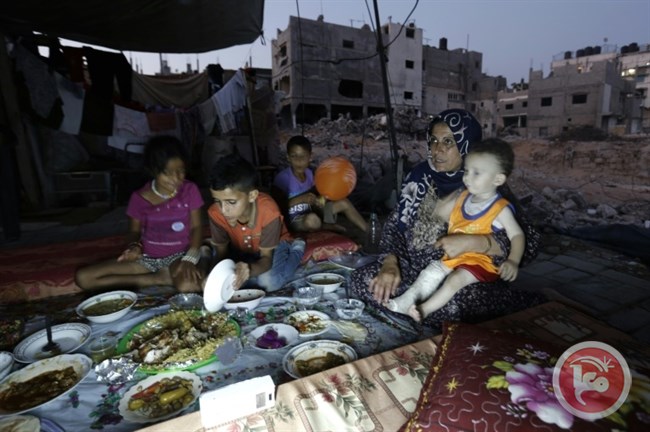

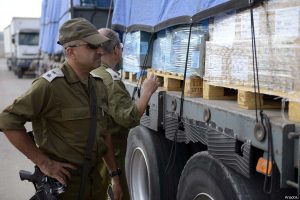
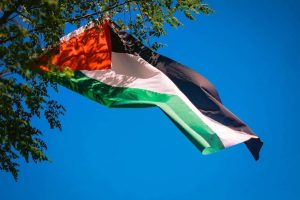
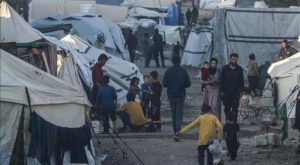
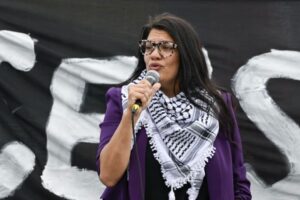


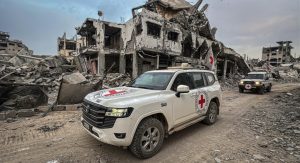














 Mina Indonesia
Mina Indonesia Mina Arabic
Mina Arabic